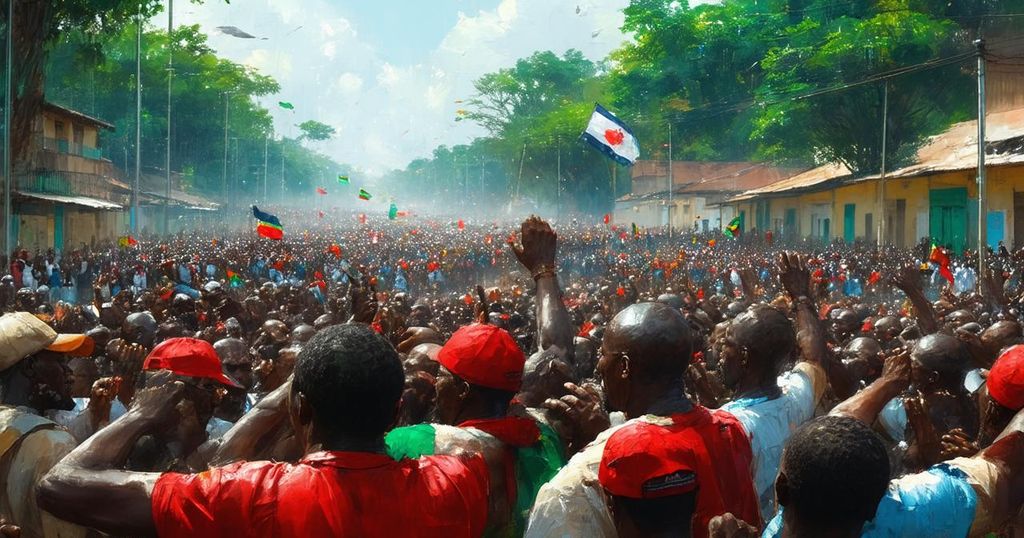Mozambique Presidential Election: Frelimo’s Daniel Chapo Declared Winner Amid Allegations of Fraud

Mozambique’s ruling party, Frelimo, has won the recent presidential election amid serious allegations of rigging and violence. Daniel Chapo has been elected with 71% of the vote, making history as the first president born post-independence. His main challenger, Venancio Mondlane, claims electoral fraud and has initiated protests, resulting in a tense situation marked by police clashes and international criticism of the election’s legitimacy.
In the recent elections in Mozambique, the ruling party, Frelimo, has announced victory, thereby extending its prolonged rule of 49 years in the nation. The party’s presidential candidate, Daniel Chapo, an individual relatively unknown in political spheres yet perceived as a potential agent of reform, garnered 71% of the vote. Chapo will succeed Filipe Nyusi, who has completed two terms in office. At 47 years old, Chapo is historically significant as the first president born after Mozambique gained independence in 1975. His nearest rival, Venancio Mondlane, received 20% of the ballots cast. However, this election has faced significant scrutiny due to numerous allegations of electoral fraud, as well as reports of violence against opposition supporters, leading to nationwide protests. International reactions have ensued, including a premature commendation from Zimbabwe’s President Emmerson Mnangagwa, who congratulated Chapo on what he referred to as a “resounding victory” prior to the official announcement of results. Reports from Mozambique’s capital, Maputo, indicate a tense atmosphere, with numerous businesses closed and streets largely deserted. Mondlane, the main opposition figure, has urged a national strike in protest against alleged irregularities, asserting that he indeed won the election, despite the apparent results favoring Chapo. He has called for protests in memory of his lawyer and a party official who were fatally shot last week, incidents he claims are politically motivated. As confrontations escalated, police resorted to using live ammunition and tear gas against demonstrators protesting the electoral conduct. The election has also drawn criticism from European Union observers who reported discrepancies during the counting process and pointed to the unjustifiable alteration of results. As this story continues to develop, further updates regarding the political situation in Mozambique are anticipated.
The political landscape in Mozambique has been dominated by Frelimo since the country achieved independence in 1975. The party has faced constant allegations of electoral misconduct over the decades, with opposition forces frequently asserting that elections are rigged and that the media coverage favors the incumbent. This election cycle has followed a similar trend, marked by severe unrest and violence, sparking protests amidst claims of voter suppression and intimidation of opposition figures. The situation is further exacerbated by the murder of political activists, which adds to the climate of fear surrounding the elections.
In conclusion, the recent presidential election in Mozambique highlights the ongoing challenges faced in the nation’s electoral process, with widespread claims of rigging and violence against opposing candidates. Daniel Chapo’s ascension to the presidency marks a significant moment in Mozambique’s political history, yet the tensions surrounding the election raise serious concerns about the legitimacy of the electoral process and the political environment as a whole. Continued scrutiny and demands for accountability from both citizens and the international community are essential as Mozambique navigates this critical juncture in its governance.
Original Source: www.bbc.com






